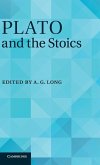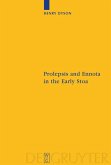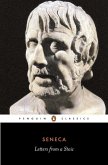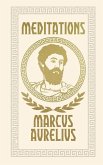This luxurious hardback edition brings together four classic essays on Stoic philosophy from the Ancient Greek world, beautifully presented with gold embossing and stenciled page edges. Is there an answer to the question 'How does one lead a happy life?' Certainly one ancient Greek school of philosophy believed that there was: lead a life of virtue, one in harmony with nature and do not be swayed by fortune or misfortune. First propounded by Zeno of Citium, Stoicism has resonated through the ages and, today, it seems even more pertinent as we look for ways to combat the constant bombardment of our lives by outside forces, whether they be the effects of current affairs, our work, family issues, economic problems or social pressures. Collected together in this volume are four key works that explain the key tenets of Stoicism, each one offering mindful lessons about how to face both the best and the worst things and find your path through life. Contains: - On the Shortness of Life by Seneca - Of Peace of Mind by Seneca - The Enchridion of Epictetus by Epictetus - Meditations by Marcus Aurelius. This deluxe edition features gold foil cover embossing, stencilled page-edges and full-color endpapers, making a true collector's item. Also included is an introduction that explores the tenets of Stoicism and explains how crucial these works are to understanding this school of philosophical thought.
Hinweis: Dieser Artikel kann nur an eine deutsche Lieferadresse ausgeliefert werden.
Hinweis: Dieser Artikel kann nur an eine deutsche Lieferadresse ausgeliefert werden.







![[Set Seneca, Briefe an Lucilius I+II, Tusculum], 2 Teile / Lucius Annaeus Seneca: Epistulae morales ad Lucilium / Briefe an Lucilius Band I+II [Set Seneca, Briefe an Lucilius I+II, Tusculum], 2 Teile / Lucius Annaeus Seneca: Epistulae morales ad Lucilium / Briefe an Lucilius Band I+II](https://bilder.buecher.de/produkte/66/66222/66222626m.jpg)
